Editor’s Note: This is the tenth chapter of Romulus, by Jacob Abbott (published 1902).
X. Organization
There has been a great deal of philosophical discussion, and much debate, among historians and chronologists, in attempting to fix the precise year in which Romulus commenced the building of Rome. The difficulty arises from the fact, that no regular records of public events were made in those ancient days. In modern times such records are very systematically kept,—an express object of them being to preserve and perpetuate a knowledge of the exact truth in respect to the time, and the attendant circumstances, relating to all great transactions. On the other hand, the memory of public events in early periods of the world, was preserved only through tradition; and tradition cares little for the exact and the true. She seeks only for what is entertaining. Her function being simply to give pleasure to successive generations of listeners, by exciting their curiosity and wonder with tales,—which, the more strange and romantic they are, the better they are suited to her purpose—she concerns herself very little with such simple verities as dates and names. The exposure of the twin infants of Rhea, supposing such an event to have actually happened, she remembered well, and repeated the narrative of it—adorning it, doubtless, with many embellishments—from age to age, so that the whole story comes down to modern times in full detail; but as to the time when the event took place, she gave herself no concern. The date would have added nothing to the romance of the story, and thus it was neglected and forgotten.
In subsequent times, however, when regular historical annals began to be recorded, chronologists attempted to reason backward, from events whose periods were known, through various data which they ingeniously obtained from the preceding and less formal narratives, until they obtained the dates of earlier events by a species of calculation. In this way the time for the building of Rome was determined to be about the year 754 before Christ. As to Romulus himself, the tradition is that he was but eighteen or twenty years old when he commenced the building of it. If this is true, his extreme youth goes far to palliate some of the wrongs which he perpetrated—wrongs which would have been far more inexcusable if committed with the deliberate purpose of middle life, than if prompted by the unthinking impulses and passions of eighteen.
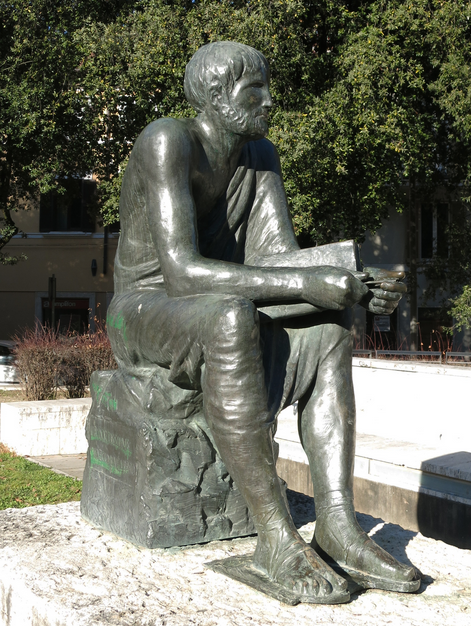
A certain Roman philosopher, named Varro, who lived some centuries after the building of the city, conceived of a very ingenious plan for discovering the year in which Romulus was born. It was this. By means of the science of astrology, as practiced in those days, certain learned magicians used to predict what the life and fortunes of any man would be, from the aspects and phases of the planets and other heavenly bodies at the time of his birth. The idea of Varro was to reverse this process in the case of Romulus; that is, to deduce from the known facts of his history what must have been the relative situations of the planets and stars when he came into the world! He accordingly applied to a noted astrologer to work out the problem for him. Given, a history of the incidents and events occurring to the man in his progress through life; required, the exact condition of the skies when the child was born. In other words, the astrologer was to determine what must have been the relative positions of the sun, moon, and stars, at the birth of Romulus, in order to produce a being whose life should exhibit such transactions and events as those which appeared in Romulus’s subsequent history. When the astrologer had thus ascertained the condition of the skies at the time in question, the astronomers, as Varro concluded, could easily calculate the month and the year when the combination must have occurred.
Now, it was the custom in those days to reckon by Olympiads, which were periods of four years, the series commencing with a great victory at a foot-race in Greece, won by a man named Corœbus, from which event originated the Olympian games, which were afterward celebrated every four years, and which in subsequent ages became so renowned. The time when Corœbus ran his race, and thus furnished an era for all the subsequent chronologists and historians of his country, is generally regarded as about the year 776 before Christ; and the result of the calculations of Varro’s astrologer, and of the astronomers who perfected it, was, that to lead such a life as Romulus led, a man must have been born at a time corresponding with the first year of the second Olympiad; that is, taking off from 776, four years, for the first Olympiad, the first year of the second Olympiad would be 772; this would make the time of his birth 772 before Christ; and then deducting eighteen years more, for the age of Romulus when he began to build his wall, we have 754 before Christ as the era of the foundation of Rome. This method of determining a point in chronology seems so absurd, according to the ideas of the present day, that we can hardly resist the conclusion, that Varro, in making his investigation, was really guided by other and more satisfactory modes of determining the point, and that the horoscope was not what he actually relied upon. However this may be, the era which he fixed upon has been very generally received, though many others have been proposed by the different learned men who have successively investigated the question.
According to the accounts given by the early writers, the constructions which Romulus and his companions made were of a very rude and simple character; such as might have been expected from a company of boys: for boys we ought perhaps to consider them all, since it is not to be presumed that the troop, in respect to age and experience, would be much in advance of the leaders. The wall which they built about the city was probably only a substantial stone fence, and their houses were huts and hovels. Even the palace, for there was a building erected for Romulus himself which was called the palace, was made, it is said, of rushes. Perhaps the meaning is that it was thatched with rushes,—or possibly the expression refers to a mode of building sometimes adopted in the earlier stages of civilization, in which straw, or rushes, or some similar material is mixed with mud or clay to help bind the mass together, the whole being afterward dried in the sun. Walls thus made have been found to possess much more strength and durability than would be supposed possible for such a material to attain.
However this may be, the hamlet of huts which Romulus and his wild coadjutors built and walled in, must have appeared at the time, to all observers, a very rude and imperfect attempt at building a city; in fact it must have seemed to them, if it is true that Romulus was at that time only eighteen years old, more like a frolic of thoughtless boys than a serious enterprise of men. Romulus, however, whatever others may have thought of his work, was wholly in earnest. He felt that he was a prince, and proud of his birth, and fully conscious of his intellectual and personal power, he determined that he would have a kingdom.
It seems, however, that thus far he had not been considered as possessing any thing like regal authority over his company of followers, but had been regarded only as a sort of chieftain exercising an undefined and temporary power; for as soon as the huts were built and the enclosures made, he is said to have convened an assembly of the people, for consultation in respect to the plan of government that they should form. Romulus introduced the business of this meeting by a speech appropriate to the occasion, which speech is reported by an ancient historian somewhat as follows. Whether Romulus actually spoke the words thus attributed to him, or whether the report contains only what the reporter himself imagined him to say, there is now no means of knowing.
“We have now,” said Romulus, according to this record, “completed the building of our city, so far as at present we are able to do it; and it must be confessed that if we were required to depend for protection against a serious attack from an enemy, on the height of our walls, or on their strength and solidity, our prospects would not be very encouraging. But our walls we must remember are not what we rely upon. No walls can be so high, that an enemy can not scale them. The dependence must be after all on the men within the city, and not on the ramparts and entrenchments which surround it, whatever those ramparts and entrenchments may be. We must therefore rely upon ourselves, for our safety—upon our valor, our discipline, our union and harmony. It is courage and energy in the people, not strength in outward defenses, on which the safety and prosperity of a State must depend.
“The great work before us therefore is yet to be done. We have to organize a government under which order and discipline may come in, to control and direct our energies, and prepare us to meet whatever future exigencies may arise, whether of peace or war. What form shall be given to this government is the question that you have now to consider. I have learned by inquiry that there are various modes of government adopted among men, and between these we have now to decide. Shall our commonwealth be governed by one man? Or shall we select a certain number of the wisest and bravest of the citizens, and commit the administration of public affairs to them? Or, in the third place, shall we commit the management of the government to the control of the people at large? Each of these three forms has its advantages, and each is attended with its own peculiar dangers. You are to choose between them. Only when the decision is once made, let us all unite in maintaining the government which shall be established, whatever its form may be.”
The result of the deliberation which followed, after the delivery of this address, was that the government of the state should be, like the government of Alba, under which the followers of Romulus had been born, a monarchy; and that Romulus himself should be king. He was a prince by birth, an inheritor of regal rank and power, by regular succession, from a line of kings. He had shown himself, too, by his deeds, to be worthy of power. He was courageous, energetic, sagacious, and universally esteemed. It was decided accordingly that he should be king, and he was proclaimed such by all the assembled multitude, with long and loud acclamations.
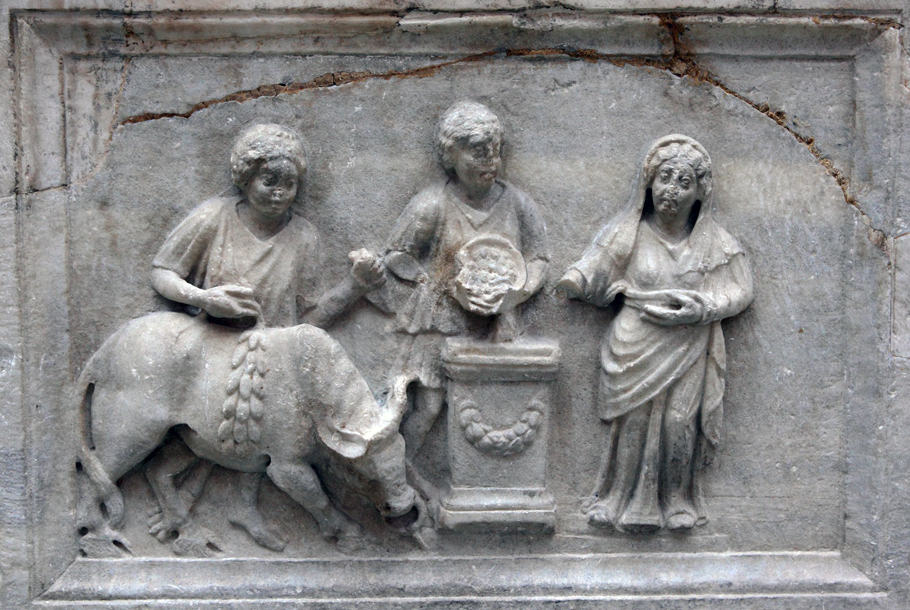
Notwithstanding the apparent unanimity and earnestness of the people, however, in calling Romulus to the throne, he evinced, as the story goes, the proper degree of that reluctance and hesitation which a suitable regard to appearances seems in all ages to require of public men when urged to accept of power. He was thankful to the people for the marks of their confidence, but he could not consent to assume the responsibilities and prerogatives of power until the choice made by his countrymen had been confirmed by the divinities of the land. So he resolved on instituting certain solemn religious ceremonies, during the progress of which he hoped to receive some manifestation of the divine will. These ceremonies consisted principally of sacrifices which he caused to be offered on the plain near the city. While Romulus was engaged in these services, the expected token of the divine approval appeared in a supernatural light which shone upon his hand. At least it was said that such a light was seen, and the appearing of it was considered as clearly confirming the right of Romulus to the throne. He no longer made any objection to assuming the government of the new city as its acknowledged king.
The first object to which he gave his attention was the organization of the people, and the framing of the general constitution of society. The community over which he was called to preside had consisted thus far of very heterogeneous and discordant materials. Vast numbers of the people were of the humblest and most degraded condition, consisting of ignorant peasants, some stupid, others turbulent and ungovernable; and of refugees from justice, such as thieves, robbers, and outlaws of every degree. But then, on the other hand, there were many persons of standing and respectability. The sons of families of wealth and influence in Alba had, in many cases, joined the expedition, and at last, when the building of the city had advanced so far as to make it appear that the enterprise might succeed, more men of age and character came to join it, so that Romulus found himself, when he formally assumed the kingly power, at the head of a community which contained the elements of a very respectable commonwealth. These elements were, however, thus far all mingled together in complete confusion, and the work that was first to be done was to adopt some plan for classifying and arranging them.
It is most probable, as a matter of fact, that the organization and the institutions which in subsequent times appeared in the Roman state, were not deliberately planned and formally introduced by Romulus at the outset, but that they gradually grew up in the progress of time, and that afterward historians and philosophers, in speculating upon them at their leisure, carried back the history of them to the earliest times, in order, by so doing, to honor the founder of the city, and also to exalt and aggrandize the institutions themselves in public estimation, by celebrating the antiquity and dignity of their origin.
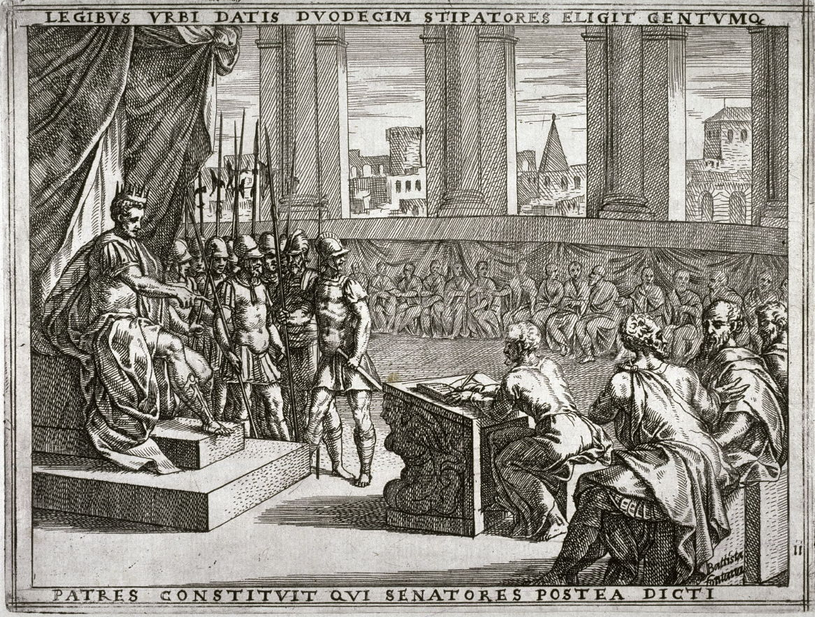
The institutions which Romulus actually founded, were of a very republican character, if the accounts of subsequent writers are to be believed. He established, it is true, a gradation of ranks, but the most important offices, civil and military, were filled, it is said, by election on the part of the people. In the first place, the whole population was divided into three portions, which were called tribes, which word was formed from the Latin word tres, meaning three. These tribes chose each three presiding officers, selecting for the purpose the oldest and most distinguished of their number. It is probable, in fact, that Romulus himself really made the selection, and that the action of the people was confined to some sort of expression of assent and concurrence for it is difficult to imagine how any other kind of election than this could be possible among so rude and ignorant a multitude. The tribes were then subdivided each into thirty counts or counties, and each of these likewise elected its head. Thus there was a large body of magistrates or chieftains appointed, ninety-nine in number, namely, nine heads of tribes and ninety heads of counties. Romulus himself added one to the number, of his own independent selection, which made the hundredth. The men thus chosen, constituted what was called the senate. They formed the great legislative council of the nation. They and the families descending from them became, in subsequent times, an aristocratic and privileged class, called the Patricians. The remaining portion of the population were called Plebeians.
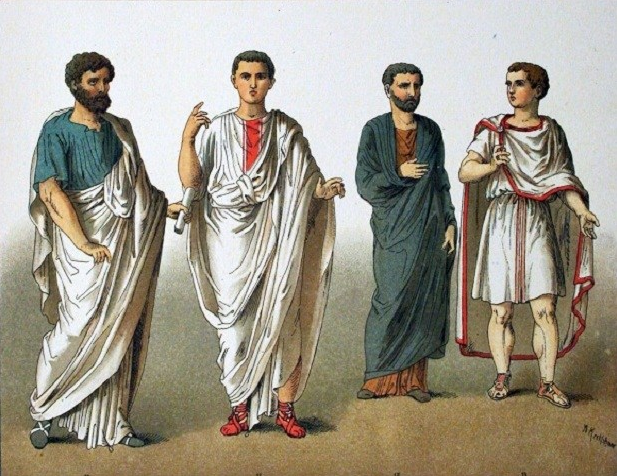
The Plebeians comprised, of course, the industrial and useful classes, and were in rank and station inferior to the Patricians. They were, however, not all upon a level with each other, for they were divided into two great classes, called patrons and clients. The patrons were the employers, the proprietors, the men of influence and capital. The clients were the employed, the dependent, the poor. The clients were to perform services of various kinds for the patrons, and the patrons were to reward, to protect, and to defend the clients. All these arrangements Romulus is said to have ordained by his enactments, and thus introduced as elements in the social constitution of the state. It is more probable, however, that instead of being thus expressly established, by the authority of Romulus as a lawgiver, they gradually grew up of themselves, perhaps with some fostering attention and care on his part, and possibly under some positive regulation of law. For such important and complicated relations as these are not of a nature to be easily called into existence and action, in an extended and unorganized community, by the mere fiat of a military chieftain.
Perhaps, however, it is not intended by the ancient historians, in referring all these complicated arrangements of the Roman civil polity to the enactments of Romulus, to convey the idea that he introduced them at once in all their completeness, at the outset of his reign. Romulus continued king of Rome for nearly forty years, and instead of making formal and positive enactments, he may have gradually introduced the arrangements ascribed to him, as usages which he fostered and encouraged,—confirming and sanctioning them from time to time, when occasion required, by edicts and laws.
However this may have been, it is certain that Romulus, in the course of his reign, laid the foundation of the future greatness and glory of Rome, by the energy with which he acted in introducing order, system, and discipline into the community which he found gathered around him. He seems to have had the sagacity to perceive from the outset that the great evil and danger which he had to fear was the prevalence of the spirit of disorder and misrule among his followers. In fact, nothing but tumult and confusion was to have been expected from such a lawless horde as his, and even after the city was built, the presumption must have been very strong in the mind of any considerate and prudent man, against the possibility of ever regulating and controlling such a mass of heterogeneous and discordant materials, by any human means. Romulus saw, however, that in effecting this purpose lay the only hope of the success of his enterprise, and he devoted himself with great assiduity and care, and at the same time with great energy and success, to the work of organizing it. The great leading objects of his life, from the time that he commenced the government of the new city, were to arrange and regulate social institutions, to establish laws, to introduce discipline, to teach and accustom men to submit to authority, and to bring in the requirements of law, and the authority of the various recognized relations of social life, to control and restrain the wayward impulses of the natural heart.
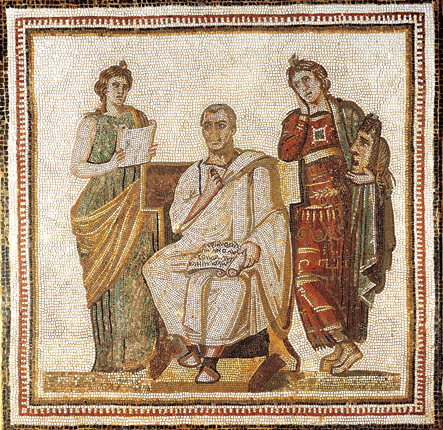
As a part of this system of policy, he laid great stress upon the parental and family relation. He saw in the tie which binds the father to the child and the child to the father, a natural bond which he foresaw would greatly aid him in keeping the turbulent and boisterous propensities of human nature under some proper control. He accordingly magnified and confirmed the natural force of parental authority by adding the sanctions of law to it. He defined and established the power of the father to govern and control the son, rightly considering that the father is the natural ally of the state in restraining young men from violence, and enforcing habits of industry and order upon them, at an age when they most need control. He clothed parents, therefore, with authority to fulfill this function, considering that what he thus aided them to do, was so much saved for the civil magistrate and the state. In fact, he carried this so far that it is said that the dependence of the child upon the father, under the institutions of Romulus, was more complete, and was protracted to a later period than was the case under the laws of any other nation. The power of the father over his household was supreme. He was a magistrate, so far as his children were concerned, and could thus not only require their services, and inflict light punishments for disobedience upon them, as with us, but he could sentence them to the severest penalties of the law, if guilty of crime.
The laws were equally stringent in respect to the marriage tie. Death was the penalty for the violation of the marriage vows. All property belonging to the husband and to the wife was held by them in common, and the wife, if she survived the husband, and if the husband died without a will, became his sole heir. In a word, the laws of Romulus evince a very strong desire on the part of the legislator to sustain the sacredness and to magnify the importance of the family tie; and to avail himself of those instinctive principles of obligation and duty which so readily arise in the human mind out of the various relations of the family state, in the plans which he formed for subduing the impulses and regulating the action of his rude community.
He devoted great attention too to the institutions of religion. He knew well that such lawless and impetuous spirits as his could never be fully subdued and held in proper subordination to the rules of social order and moral duty, without the influence of motives drawn from the spiritual world; and he accordingly adopted vigorous measures for confirming and perpetuating such religious observances as were at that time observed, and in introducing others. Every public act which he performed was always accompanied and sanctioned by religious solemnities. The rites and ceremonies which he instituted seem puerile to us, but they were full of meaning and of efficacy in the view of those who performed them. There was, for example, a class of religious functionaries called augurs, whose office it was to interpret the divine will by means of certain curious indications which it was their special profession to understand. There were three of these augurs, and they were employed on all public occasions, both in peace and war, to ascertain from the omens whether the enterprise or the work in regard to which they were consulted was or was not favored by the councils of heaven. If the augury was propitious the work was entered upon with vigor and confidence. If otherwise, it was postponed or abandoned.
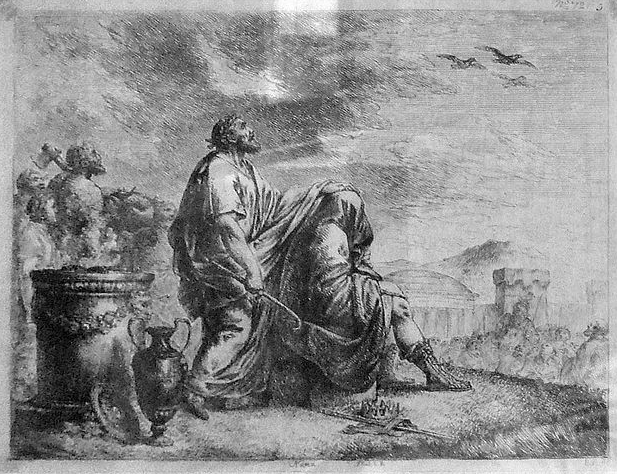
The omens which the augurs observed were of various kinds, being drawn sometimes from certain peculiarities in the form and structure of the internal organs of animals offered in sacrifice, sometimes from the appearance of birds in the sky, their numbers or the direction of their flight, and sometimes from the forms of clouds, the appearance of the lightning, and the sound of the thunder. Whenever the augurs were to take the auspices from any of the signs of the sky, the process was this. They would go with solemn ceremony to some high place—in Rome there was a station expressly consecrated to this purpose on the Capitoline hill,—and there, with a sort of magical wand which they had for the purpose, one of the number would determine and indicate the four quarters of the heaven, pointing out in a solemn manner the directions of east, west, north and south. The augur would then take his stand with his back to the west and his face of course to the east. The north would then be on his left hand and the south at his right. He would then, in this position watch for the signs. If it was from the thunder that the auspices were to be taken, the augur would listen to hear from what quarter of the heavens it came. If the lightning appeared in the east and the sound of the thunder seemed to come from the northward, the presage was favorable. So it was if the chain of lightning seen in the sky appeared to pass from cloud to cloud above, instead of descending to the ground. On the other hand, thunder sounding as if it came from the southward, and lightning striking down to the earth, were both unpropitious omens. As to birds, some were of good omen, as vultures, eagles and woodpeckers. Others were evil, as ravens and owls. Various inferences were drawn too from the manner in which the birds that appeared in the air, were seen to fly, and from the sound of their note at the time when the observation was made.
By these and many similar means the government of Romulus vainly endeavored to ascertain the will of heaven in respect to the plans and enterprises in which they were called upon from time to time to engage. There was perhaps in these observances much imposture, and much folly; still they could only have been sustained, in their influence and ascendency over the minds of the people, by a sincere veneration on their part for some unseen and spiritual power, and a reverent desire to conform the public measures of their government to what they supposed to be the divine will.
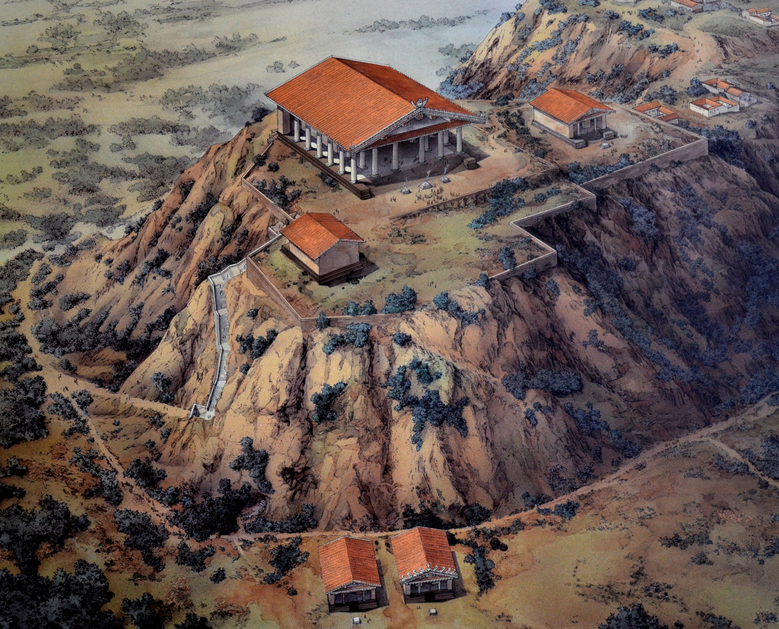
By such measures as we have thus described Romulus soon produced order out of confusion within his little commonwealth. The enterprise which he had undertaken and the great success which had thus far followed it, attracted great attention, and he soon found that great numbers began to come in from all the surrounding country to join him. Many of these were persons of still worse character than those who had adhered to him at first, and he soon found that to admit them indiscriminately into the city would be to endanger the process of organization which was now so well begun. He accordingly set apart a hill near to his city called the Capitoline hill, as an asylum for them, where they could remain in safety under regulations suitable to their condition, and without interfering with the arrangements which he had made for the rest. This asylum soon became a very attractive place for all the vagabonds, outlaws, thieves and robbers of the country. Romulus welcomed them all, and as fast as they came he busied himself with plans to furnish them with employment and subsistence. He enlisted some of them in his army. Some he employed to cultivate the ground in the territory belonging to the city. Others were engaged as servants for the people within the walls—being taken into the city, in small numbers, from time to time, as fast as they could be safely received. In process of time, however, the walls of the city were extended so as to include the Capitoline hill, and thus at last the whole mass was brought into Rome together.

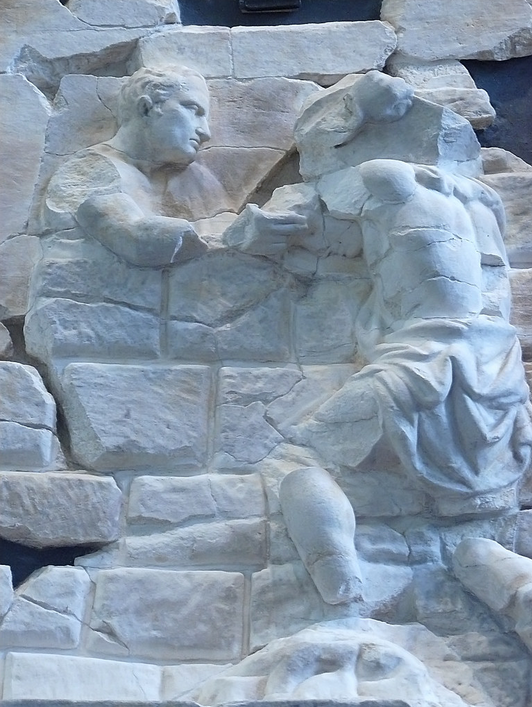


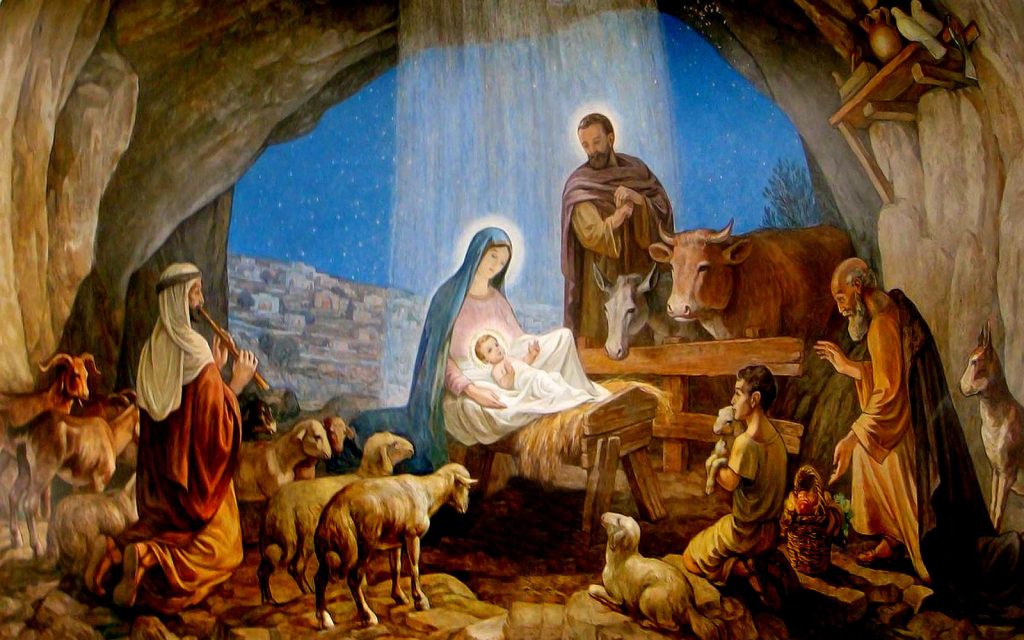





5
4.5
Thank you for sharing this work with us. Keep serializing these works that delve into the foundations of Western Civilization. Great Work